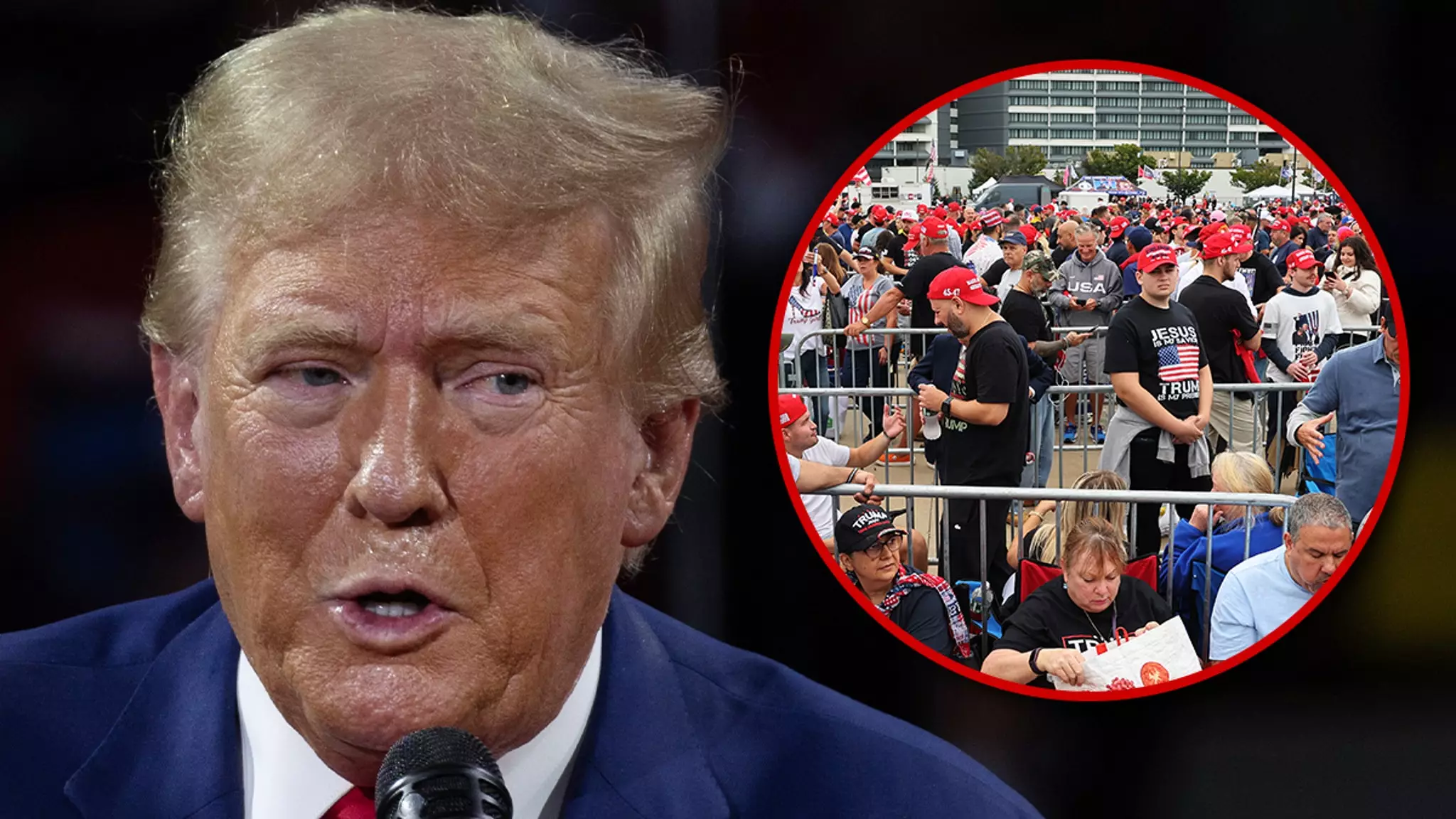In a year marked by increased aggression against high-profile political figures, ex-President Donald Trump finds himself navigating an environment rife with threats and security breaches. Following two alarming assassination attempts earlier this year, recent reports suggest yet another potential danger during his campaign rally at the Nassau Veterans Memorial Coliseum on Long Island. A social media post from journalist James Lalino ignited apprehension by alleging a breach of security at the event, which is set to host thousands of supporters eager to hear Trump speak.
Regardless of the authenticity of the claims, the mere suggestion of risk at such a high-profile event sends shockwaves through security teams and the general public alike. With the political climate in the U.S. becoming increasingly volatile, it is crucial to examine how these elements contribute to a culture of fear surrounding political gatherings.
Lalino’s post suggested that the security perimeter was compromised and that a bomb had been discovered during a K9 sweep of the area. The stakes intensified with the implied presence of a “blue barrel” linked to the alleged explosive device, sparking fears that another attempt on Trump’s life might be imminent. However, these assertions were quickly met with skepticism. Notably, NBC’s Tom Winter challenged the credibility of the report, indicating that multiple law enforcement officials had confirmed no evidence of any explosive device at the rally site. A subsequent statement from the Nassau County Police alleviated some of the tension, reiterating that the threats were unfounded.
This incident not only reflects the fragility of Trump’s safety but also highlights the broader context of misinformation that can exacerbate fears in politically charged environments. In an age where social media can amplify dubious claims, it becomes increasingly complicated to discern credible threats from fabricated scenarios.
Adding to the unnerving climate, recent attempts on Trump’s life—including the arrest of Ryan Wesley Routh, who was caught with an AK-style rifle near Trump’s golf outing—emphasize the escalating risk surrounding the former president. The prior incident, which culminated in a fatal altercation involving a Secret Service sniper, raises critical questions regarding the adequacy of security measures in place. How can authorities stay a step ahead of potential threats when the motives behind such aggressions remain unpredictable and often catalyzed by passionate political divides?
The appearance of regular security challenges may reinforce the narrative of growing hostility toward political figures, particularly those with polarizing appeal like Trump. As rallies become touchpoints for political fervor, the intersection of politics and public safety becomes increasingly fragile.
As political rallies continue to draw vast numbers of supporters amid a backdrop of real and perceived threats, the importance of solid security protocols cannot be overstated. With politicians like Donald Trump facing so many risks, one must consider not only the immediate implications of these threats but also the longer-term consequences for political discourse and public engagement. Safeguarding political events is more critical than ever, as is the need for a national conversation about the underlying tensions that spark such violent acts. Balancing security and the right to free speech remains a vital challenge moving forward, especially in a democracy fraught with division.


Leave a Reply